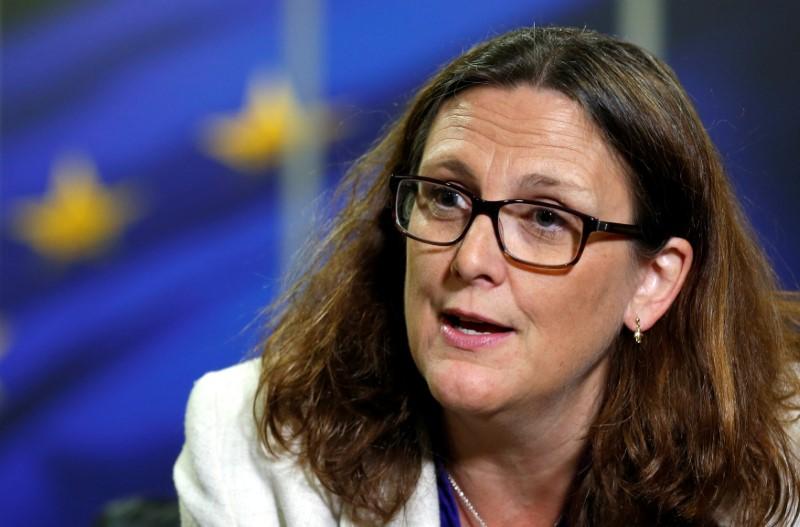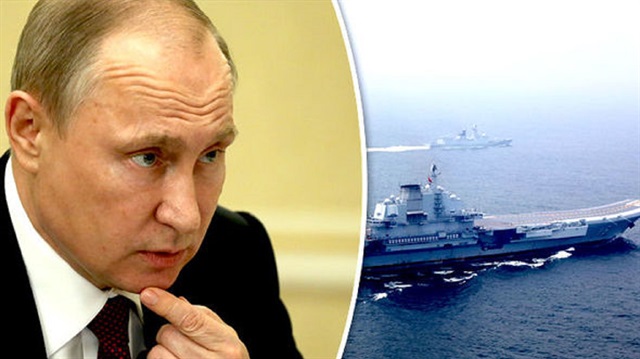CBC (26 July 2017)
Canada plans to send more police officers to Iraq to advise and train their counterparts as the war-torn country gradually moves from military to police control of newly liberated areas, including the city of Mosul.
The Liberal government will shortly announce a significant increase in its authorized police contingent in Iraq, to 20 officers from the current four, CBC News has learned.
And the RCMP-led peacekeeping effort, drawing on provincial and municipal officers, will emphasize the training of female Iraqi officers to improve the country's ability to deal with domestic violence and human trafficking.
A senior government official, speaking on condition of anonymity, confirmed the numbers will ramp up over the next year or more, after Canada sends a fourth officer to Iraq next month to fulfil an earlier commitment made in May 2016.
A briefing note for Foreign Affairs Minister Chrystia Freeland and Marie-Claude Bibeau, the international development minister, spells out the rationale: "This increase will enable Canada, as a member of the global coalition against Daesh, to build key capacities in Iraqi security institutions and support transitions to new policing approaches."
The Feb. 24 document outlining the mission, approved jointly by Public Safety Minister Ralph Goodale, Freeland and Bibeau, was obtained by CBC News under the Access to Information Act.
The document estimates the annual cost of providing 20 Canadian officers to Iraq at $7 million, paid for out of RCMP and Global Affairs Canada peacekeeping funds.
Critical step
"As military operations to recapture Mosul progress, the government of Iraq is looking beyond immediate security needs and toward the sustainable reform of its security institutions, including the rebuilding of Iraq's police forces," says the document.
"This is a critical step toward enabling Iraqi police to play a more stabilizing role in Iraq and to manage threats such as Daesh," also known as the Islamic State in Iraq and Syria (ISIS), which has sought to establish a caliphate based in northern Iraq.
Earlier this month, the Iraq government declared victory over ISIS forces in Mosul, the city seized in 2014 by extremists and subject to hard fighting in the last eight months.
Canada has been under pressure to contribute as many as 45 police trainers to Iraq, including to an Italian-led police training mission. But the Liberal government has resisted the demands, as Canada had little direct experience of Iraq's policing sector.
'It's a valuable thing to do to get Iraq back on its feet.'
The briefing note says some of them may be sent to support the Kurdish regional government in the north.
The beefed-up mission will emphasize the training of women officers in Iraq, where there are only about 10,000 to 12,000 female police compared with more than 600,000 male officers.
"Male and female officers are provided different training at separate training institutes," says the note to Freeland and Bibeau. "Among female police, 9,000 are uniformed and work primarily to search women and children upon arrest or at checkpoints.
"As many as 3,000 [female] officers have administrative duties."
'Educated and eager'
The expanded Canadian mission will look for opportunities to recruit and train more Iraqi women for broader police work.
"Canadian officials have met with female officers and trainees, noting they are educated and eager, though they lack dedicated resources, access to the same training as men, family and societal support."
The United Nations' peacekeeping web page says that as of last month, there were 58 Canadian police deployed to UN-sanctioned missions, with the vast majority in Haiti.
Walter Dorn, an associate professor at the Canadian Forces College in Toronto, welcomed the increased numbers to Iraq.
"I think it's a valuable thing to do to help Iraq get back on its feet after ISIS had taken a large part of Iraq territory, and policing is a major factor in creating stability," he said.
But he noted that the Iraq mission is not UN-supported, and so Canada's commitment last year to deploy 150 peacekeeping police officers to various UN missions still stands.
Earlier this year, Canada agreed to send up to 10 police officers to Colombia to help in an international UN-led effort to demobilize guerrilla groups and monitor a ceasefire.
No comments yet.
- SWEDISH GOVERNMENT FACES NO-CONFIDENCE CRISIS OVER IT LEAK Europe - EU 27.07.2017
-
 EUROPE SEEKS TO SET GLOBAL TRADE RULES AFTER TRUMP STEPS BACK
Europe - EU
27.07.2017
EUROPE SEEKS TO SET GLOBAL TRADE RULES AFTER TRUMP STEPS BACK
Europe - EU
27.07.2017
-
 RUSSIA SAYS ITS BALTIC SEA WAR GAMES WITH CHINESE NAVY NOT A THREAT
Asia - Pacific
27.07.2017
RUSSIA SAYS ITS BALTIC SEA WAR GAMES WITH CHINESE NAVY NOT A THREAT
Asia - Pacific
27.07.2017
- CANADA TO BEEF UP POLICE PRESENCE IN IRAQ AFTER FALL OF MOSUL Iraq 27.07.2017
- COMMISSION GIVES POLAND ONE MONTH TO COMPLY WITH JUDICIAL RECOMMENDATIONS Europe - EU 27.07.2017
-
19.04.2024
Türk-Ermeni İlişkileri Üzerine Ömer Engin Lütem Konferansları 2023 -
11.04.2023
Türk-Ermeni İlişkileri Üzerine Ömer Engin Lütem Konferansları 2022 -
27.03.2023
RADİKAL ERMENİ UNSURLARCA GERÇEKLEŞTİRİLEN MEZALİMLER VE VANDALİZM -
17.03.2023
PATRIOTISM PERVERTED -
23.02.2023
MEN ARE LIKE THAT -
03.02.2023
BAKÜ-TİFLİS-CEYHAN BORU HATTININ YAŞANAN TARİHİ -
16.12.2022
INTERNATIONAL SCHOLARS ON THE EVENTS OF 1915 -
07.12.2022
FAKE PHOTOS AND THE ARMENIAN PROPAGANDA -
07.12.2022
ERMENİ PROPAGANDASI VE SAHTE RESİMLER -
30.03.2022
Türk-Ermeni İlişkileri Üzerine Ömer Engin Lütem Konferansları 2021 -
01.01.2022
A Letter From Japan - Strategically Mum: The Silence of the Armenians -
01.01.2022
Japonya'dan Bir Mektup - Stratejik Suskunluk: Ermenilerin Sessizliği -
11.02.2021
Türk-Ermeni Uyuşmazlığı Üzerine Ömer Engin Lütem Konferansları 2020 -
03.06.2020
Anastas Mikoyan: Confessions of an Armenian Bolshevik -
08.04.2020
Sovyet Sonrası Ukrayna’da Devlet, Toplum ve Siyaset - Değişen Dinamikler, Dönüşen Kimlikler -
18.03.2020
Türk-Ermeni Uyuşmazlığı Üzerine Ömer Engin Lütem Konferansları 2019 -
08.03.2019
Türk-Ermeni Uyuşmazlığı Üzerine Ömer Engin Lütem Konferansları 2018 -
12.06.2018
Ermeni Sorunuyla İlgili İngiliz Belgeleri (1912-1923) - British Documents on Armenian Question (1912-1923) -
02.12.2016
Turkish-Russian Academics: A Historical Study on the Caucasus -
01.07.2016
Gürcistan'daki Müslüman Topluluklar: Azınlık Hakları, Kimlik, Siyaset -
10.03.2016
Armenian Diaspora: Diaspora, State and the Imagination of the Republic of Armenia -
24.01.2016
Ermeni Sorunu Temel Bilgi ve Belgeler (2. Baskı)
-
AVİM Conference Hall 24.01.2023
CONFERENCE TITLED “HUNGARY’S PERSPECTIVES ON THE TURKIC WORLD"









